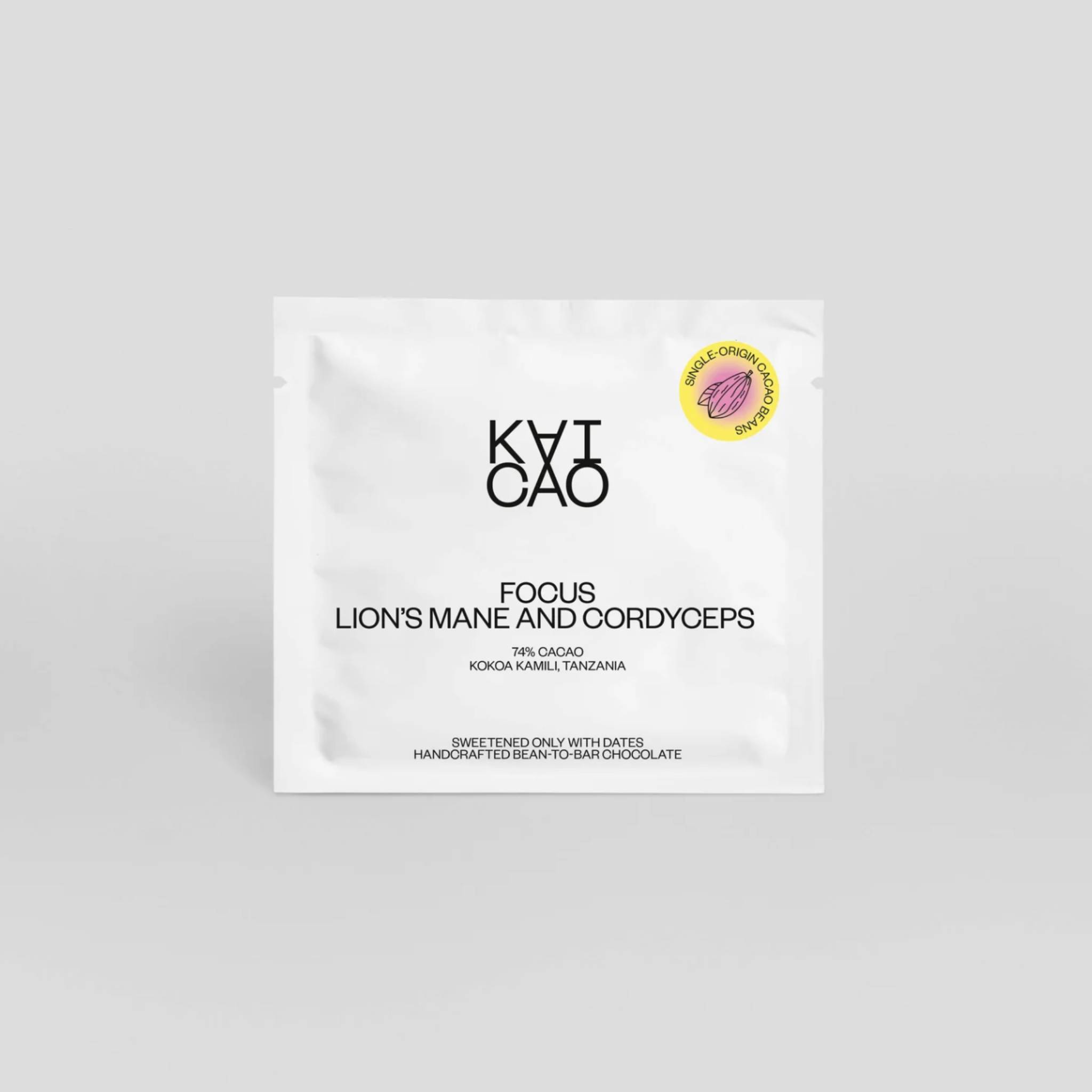Adaptogenic Mushrooms: What They Are & How They Work
Adaptogenic mushrooms may help your body handle stress better and support immune function. Learn what makes them "adaptogenic," which benefits are proven, how much to take, and potential side effects to watch for.
Published June 26, 2025

Can a mushroom really help you handle stress better? The idea has been around for thousands of years, and modern science is finally catching up. While some mushrooms just taste great in your dinner, others pack powerful compounds that could change how your body responds to daily pressure.
These special fungi are the hottest trend in functional foods, and for good reason. We'll break down what makes a mushroom "adaptogenic" and how they work in your body, from stress-fighting compounds to immune-boosting effects. Let's dig in.
» Improve your mood with functional mushroom chocolate
What are adaptogenic mushrooms?
An adaptogenic mushroom is basically nature's stress manager. These special fungi contain compounds that help your body relax, bounce back from stress, and stay balanced, no matter what life throws at you.
Think of adaptogens like a thermostat for your body. They turn things up when you need more energy and dial things down when you're overwhelmed. Research shows these mushrooms work by affecting your HPA axis, the control center that manages how your body handles stress [1].
Not every mushroom makes the cut, though. Only certain varieties pack the right mix of beta-glucans, triterpenes, and other bioactive compounds.
While your typical grocery store mushrooms provide good nutrition, adaptogenic mushrooms go way beyond that; they actively help your stress response system work better.
» Learn about cacao's theobromine health benefits
The benefits of adaptogenic mushrooms
There are a variety of key compounds that give adaptogenic mushrooms their stress-fighting superpowers:
- Beta-glucans: They activate immune cells like macrophages and natural killer cells, helping your body fight off threats more effectively. Think of them as training your immune system to be stronger and smarter.
- Triterpenes: These compounds shield your brain cells from damage while reducing inflammation [2]. They're especially powerful in reishi mushrooms, where they help calm your nervous system.
- Hericenones: They kickstart nerve growth factor production, which helps your brain create new connections and repair damaged ones. It's like fertilizer for your neurons [3].
- Cordycepin: This compound reduces inflammation and supports cognitive function by helping your cells clean house and work more efficiently [4].
The best adaptogenic mushrooms for stress and energy
Do adaptogenic mushrooms work? The answer depends on which ones you choose. Four mushrooms stand out as the heavy hitters in the adaptogenic world:
- Reishi: This is your go-to chill pill. Known as the "mushroom of immortality," reishi mushroom benefits include compounds that help you relax, sleep better, and recover from stress [5]. It's perfect for anyone feeling burned out or constantly wired.
- Lion's mane: This is like brain food on steroids. Lion's mane adaptogen properties make this shaggy white mushroom excellent for boosting memory, focus, and even helping repair damaged brain cells [6]. Students and professionals love it for mental clarity without the jitters.
- Cordyceps: This is your natural energy drink. Traditionally used by Tibetan herders, it increases stamina and helps your body use oxygen more efficiently [7]. Unlike caffeine, it energizes without the crash.
- Chaga: This is the antioxidant powerhouse. This black, crusty mushroom packs more antioxidants than almost any other natural source [8]. Think of it as your daily armor against cellular damage and aging.
» Explore why cacao is a nutritional superfood
Adaptogenic mushroom dosage and timing guide
Getting the dose right makes all the difference:
- Reishi: It works best at 1-3 grams daily, taken in the evening. Studies show this amount helps with sleep and stress recovery [9]. Take it with dinner or before bed since it can make you drowsy [10].
- Lion's mane: For brain benefits, you would need 1-3 grams daily. You can start a drinking ritual in the morning or afternoon works best since it can boost focus and energy. Cognitive benefits build up over weeks of consistent use.
- Cordyceps: It typically requires 1-3 grams daily, preferably in the morning. Avoid taking it at night since it can interfere with sleep. Think pre-workout energy that lasts all day.
- Chaga: This one is flexible. You can take 500mg to 1.5 grams anytime. Many people enjoy it as a coffee substitute since it has a slightly bitter, earthy taste that's surprisingly pleasant.
Start low and work your way up. Your body needs time to adjust to these powerful compounds. Consistency beats perfection. Daily use for several weeks builds the real benefits. These aren't quick fixes like energy drinks.
Adaptogenic mushrooms side effects and safety considerations
Most people handle adaptogenic mushrooms just fine. But there are a few important things to watch out for.
- Adaptogenic mushrooms' side effects are usually mild, maybe some stomach upset or nausea. Taking them with food usually fixes this problem. Start with smaller doses to see how your body reacts [11].
- Some mushrooms don't play nice with certain medications. Reishi and Cordyceps can thin your blood, so avoid them if you're on blood thinners. They might also lower blood pressure, which could be problematic if you're already on BP meds [12].
- People with autoimmune conditions should be extra careful. Since these mushrooms boost immune function, they might make autoimmune symptoms worse in some cases.
- Pregnant and nursing women should skip adaptogenic mushrooms.
» Experience the ultimate cognitive benefits of Lion's Mane Chocolate
Why combine mushrooms with cacao?
Cacao improves blood flow, helping your body absorb mushroom compounds better, while its mood-boosting chemicals complement mushrooms' stress-fighting properties [13]. Plus, rich cacao masks those earthy mushroom flavors.
This combination makes sticking with your routine effortless. A delicious mushroom chocolate bar feels like a treat, not medicine, and consistency is key for real adaptogenic benefits. Think of it as functional indulgence, your daily wellness wrapped in something you actually crave.
» Explore the benefits of functional mushrooms in cacao
References:
C. Cerletti, S. Esposito, and L. Iacoviello, “Edible Mushrooms and Beta-Glucans: Impact on human health,” Nutrients, vol. 13, no. 7, p. 2195, Jun. 2021, Available: https://pmc.ncbi.nlm.nih.gov/articles/PMC8308413/#sec4-nutrients
S. Wachtel-Galor, J. Yuen, J. A. Buswell, and I. F. F. Benzie, “Ganoderma lucidum (Lingzhi or Reishi),” Herbal Medicine - NCBI Bookshelf, 2011. Available: https://www.ncbi.nlm.nih.gov/books/NBK92757/
G. Surendran et al., “Acute effects of a standardised extract of Hericium erinaceus (Lion’s Mane mushroom) on cognition and mood in healthy younger adults: a double-blind randomised placebo-controlled study,” Frontiers in Nutrition, vol. 12, Apr. 2025, Available: https://doi.org/10.3389/fnut.2025.1405796
K. Srisuksai, K. Parunyakul, N. Phaonakrop, S. Roytakul, and W. Fungfuang, “The effect of cordycepin on brain oxidative stress and protein expression in streptozotocin-induced diabetic mice,” Journal of Veterinary Medical Science, vol. 83, no. 9, pp. 1425–1434, Jan. 2021, Available: https://pubmed.ncbi.nlm.nih.gov/34334512/
E. Ekiz et al., “Exploring the Potential Medicinal Benefits of Ganoderma lucidum: From Metabolic Disorders to Coronavirus Infections,” Foods, vol. 12, no. 7, p. 1512, Apr. 2023, Available: https://pmc.ncbi.nlm.nih.gov/articles/PMC10094145/
S. Docherty, F. L. Doughty, and E. F. Smith, “The acute and chronic effects of lion’s mane mushroom supplementation on cognitive function, stress and mood in young adults: a Double-Blind, Parallel Groups, pilot study,” Nutrients, vol. 15, no. 22, p. 4842, Nov. 2023, Available: https://pmc.ncbi.nlm.nih.gov/articles/PMC10675414/#sec4-nutrients-15-04842
B.-Q. Lin and S.-P. Li, “Cordyceps as an herbal drug,” Herbal Medicine - NCBI Bookshelf, 2011. Available: https://www.ncbi.nlm.nih.gov/books/NBK92758/
E. Camilleri, R. Blundell, B. Baral, T. M. Karpinski, E. Aruci, and O. M. Atrooz, “A brief overview of the medicinal and nutraceutical importance of Inonotus obliquus (chaga) mushrooms,” ScienceDirect, Aug. 15, 2024. Available: https://www.sciencedirect.com/science/article/pii/S2405844024116696#sec7
G. Venturella, V. Ferraro, F. Cirlincione, and M. L. Gargano, “Medicinal mushrooms: bioactive compounds, use, and clinical trials,” International Journal of Molecular Sciences, vol. 22, no. 2, p. 634, Jan. 2021, Available: https://pmc.ncbi.nlm.nih.gov/articles/PMC7826851/
C. Yao et al., “Ganoderma lucidum promotes sleep through a gut microbiota-dependent and serotonin-involved pathway in mice,” Scientific Reports, vol. 11, no. 1, Jul. 2021, Available: https://www.nature.com/articles/s41598-021-92913-6
G. Venturella, V. Ferraro, F. Cirlincione, and M. L. Gargano, “Medicinal mushrooms: bioactive compounds, use, and clinical trials,” International Journal of Molecular Sciences, vol. 22, no. 2, p. 634, Jan. 2021, Available: https://pmc.ncbi.nlm.nih.gov/articles/PMC7826851/
“REISHI MUSHROOM: Overview, uses, side effects, precautions, interactions, dosing and reviews.” Available: https://www.webmd.com/vitamins/ai/ingredientmono-905/reishi-mushroom
R. Franco, A. Oñatibia-Astibia, and E. Martínez-Pinilla, “Health benefits of methylxanthines in cacao and chocolate,” Nutrients, vol. 5, no. 10, pp. 4159–4173, Oct. 2013, Available: https://pmc.ncbi.nlm.nih.gov/articles/PMC3820066/
Disclaimer: The information about adaptogenic mushrooms is for educational purposes only and shouldn't replace medical advice. Always check with a healthcare professional before starting any new supplement, especially if you have health conditions or take medications
FAQs
Are adaptogenic mushrooms safe for daily use?
Yes, for most healthy adults. Start with lower doses and monitor how your body responds. Common mild side effects include digestive upset, which usually improves when taken with food.
Can I take different adaptogenic mushrooms together?
Absolutely. Combining mushrooms like lion's mane with cordyceps for cognitive energy, or using a reishi-lion's mane combo for comprehensive support, is generally safe and often beneficial.
Which adaptogenic mushroom is best for stress relief?
Reishi is considered the top choice for stress management. Take 1-3 grams in the evening to help regulate cortisol levels and promote relaxation.
What should I look for in a quality mushroom supplement?
Choose products with 100% fruiting body (not mycelium), organic certification, third-party testing for contaminants, and dual extraction processing. Avoid products with vague "proprietary blends."
How long before I see results from adaptogenic mushrooms?
Initial effects may appear within 3-7 days, but most benefits develop over 2-6 weeks of consistent daily use. Cognitive improvements typically take 4-8 weeks to become noticeable.









